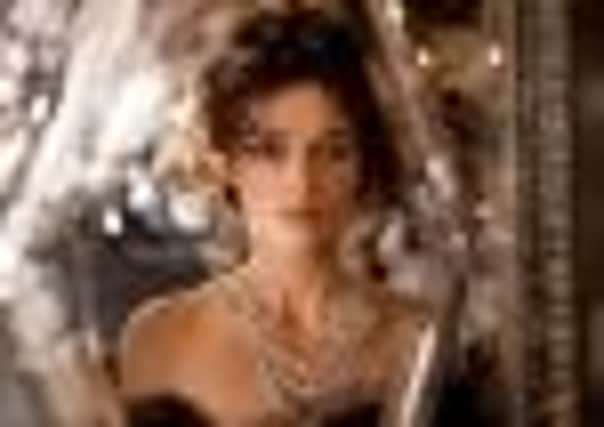Review: Anna Karenina (12A)


This latest adaptation by Joe (Atonement) Wright and Sir Tom Stoppard delves into those timeless ingredients but succeeds in delivering only a lightweight version of a mighty book.
And it’s a younger take. Anna is played by Keira Knightley – always a safe bet for a period piece – whilst Aaron Taylor-Johnson is Count Vronsky, played as a golden boy and drifting heart-breaker with an eye for the ladies but little concept of the apocalypse to come.
Advertisement
Hide AdAdvertisement
Hide AdEven Karenin is a handsome lad – he’s Jude Law. Albeit with a balding look and chunky beard. But still unmistakeably square-jawed and blue-eyed.
Wright, Stoppard and the cast work hard to present Anna as a victim of her own caprices. In this version she is not so much a villainess willing to sacrifice her happiness but a woman shocked and surprised by her descent into unstoppable passion. The girl can’t help it.
“Love was never a game to us,” utters Vronsky. And he’s right. But his late awareness of the mess into which he’s blundered matches the film’s slow-burn approach. Thus the ballad of Anna and Alexei only really comes to life as public outrage boils over. Law enjoys some tasty speeches as the honourable cuckold and plays Karenin as a solid man trying to do the right thing.
There are also welcome appearances by Emily Watson and Shirley Henderson as outraged members of Russian high society. And Knightley works hard to be plausible as her all-consuming love tips her over into paranoia and near-psychosis. The weak link is Taylor-Johnson, who lacks substance, as ultimately does the film. Wright opts for chronicling the tragedy of the lovers’ affair against a highly stylised theatrical backdrop peppered with multiple vignettes taken from the novel, which are then enacted against a rolling tableau.
As an introductory motif it would be perfect but Wright retains it for almost the whole of the piece and it soon feels like a self-indulgent affectation. The beautiful choreography is a distraction.